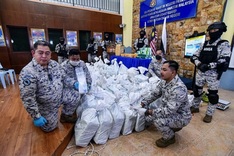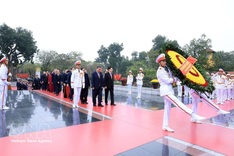Trade costs have remained the largest barrier for least developed countries and the World Bank gathered in Geneva to discuss strategies to address this. The World Bank trade plans for the world’s least developed countries are being laid out focusing on trade changes and new research partnership on “Aid effectiveness and trade for the world’s lest developed countries (LDCs)”.
The World Bank trade plans for the world’s least developed countries are being laid out focusing on trade changes and new research partnership on “Aid effectiveness and trade for the world’s lest developed countries (LDCs)”.
The “Aid for trade effectiveness research partnership” plan is designed to address research, data, and knowledge gaps for the LDCs in the current world economy.
High trade costs remain a key barrier for the least developed countries and support for trade-related capacity building – whether in modernizing ports or streamlining customs procedures - could generate significant gains for poor economies. Net commitments by the Bank on trade facilitation projects in 2010 were $4.6 billion – up from $2.4 billion in 2008.
This partnership would build on the World Bank Group’s new open data, open knowledge, and open solutions initiative outlined by World Bank Group President Robert B. Zoellick in September.
The announcement was a key outcome of a high-level workshop in Geneva on “Aid for trade facilitation and the least developed countries.” The event was sponsored by the World Bank Group, in cooperation with the United Nations, as part of preparations for the UN LDC IV Conference set for Istanbul in May 2011. It outlined priorities for the LDCs on trade – with a focus on aid effectiveness for growth through lower trade costs.
Mahmoud Mohieldin, Managing Director of the World Bank Group, issued a challenge to the development community to, “Come together in support of innovative and concrete research, data, and knowledge tools tailored to the LDCs.”
“The Bank is ready to forge a new partnership on research and data focused on trade and the LDCs,” said Mr. Mohieldin. “We are ready to work with the United Nations, other institutions, and especially our partners in the least developed countries – researchers, government, and the private sector -- in advancing this idea.”
The workshop gathered international experts, government officials, and members of the private sector to explore the effectiveness of aid for trade to the LDCs, with special attention on ways to drive down trade transaction costs.
Justin Yifu Lin, Senior Vice President and Chief Economist of the World Bank Group said, “The post-crisis world demands lower trade costs for development as well as more effective and targeted aid solutions informed by new partnerships in research. The World Bank is committed to attaining a better understanding of the channels through which aid for trade affects the poorest of the world’s citizens.”
WB: High trade costs remain key barrier for least developed countries
Trade costs have remained the largest barrier for least developed countries and the World Bank gathered in Geneva to discuss strategies to address this.
Source: dtinews.vn




















